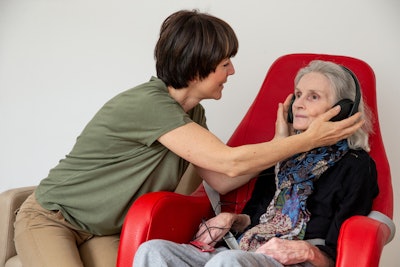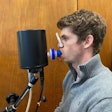
A new study from University Hospitals Connor Whole Health — an Ohio-based medical provider associated with the Cleveland Clinic — found it was feasible to conduct a hybrid music therapy intervention for patients with heart failure and patients with COPD.
Participants in the study reported positive effects on their mental health and the pilot uncovered solutions to improve future research within this patient population. The study, “Refining a Hybrid Music Therapy Intervention for Chronic Obstructive Pulmonary Disease and Heart Failure: A Single Arm Pilot Study,” was published in BMC Complimentary Medicine and Therapies.
In a news release, researchers said mental health conditions and self-reported symptoms of depression and anxiety are common among patients with COPD and can increase the risk for hospital readmission. For the study, they embarked on a two-year research project titled Music Therapy to Address Patient’s JOuRneys With CHronic Illness, Outcome and ReaDmission (MAJOR CHORD).
The goal of the pilot was to establish a foundation for future definitive trials by determining whether it was possible to deliver music therapy sessions consistently, both at the hospital and virtually at home, and have participants complete survey measures over the course of the study. The investigators also sought to determine which modifications would need to be made to the intervention and data collection processes prior to initiating a feasibile randomized controlled trial.
Participants in the study were patients with heart failure or COPD who were recruited when they were admitted to the hospital. Board-certified music therapists conducted two in-person music therapy sessions during their hospital stay. After discharge, patients then received two virtual music therapy sessions.
Patients completed measures of stress, quality of life and self-efficacy at baseline, before the sessions began. The measures were taken again at 15 and 30 days after leaving the hospital. Some participants also completed an interview at the end of the study to provide further feedback.
Researchers said the study yielded “encouraging results while also demonstrating the need to improve data collection and attendance.” Adherence to the intervention protocol was less than 80% across all monitored sessions. Semi-structured interviews supported the acceptability of the intervention.
Challenges included reaching some patients after discharge from the hospital, frequent rescheduling of virtual sessions and using the technology involved. The research team is currently conducting a follow-up study that will include measures to address these challenges, such as secure text messaging to improve communication, in-person technical assistance and engaging in more frequent communication with participants following discharge.
“Hybrid musical therapy shows promise in supporting patients with COPD and heart failure, enhancing engagement and mental health, though challenges in virtual care post-discharge need further refinement,” said Kristi Artz, MD, FACLM, CCMS, vice president of Connor Whole Health.























